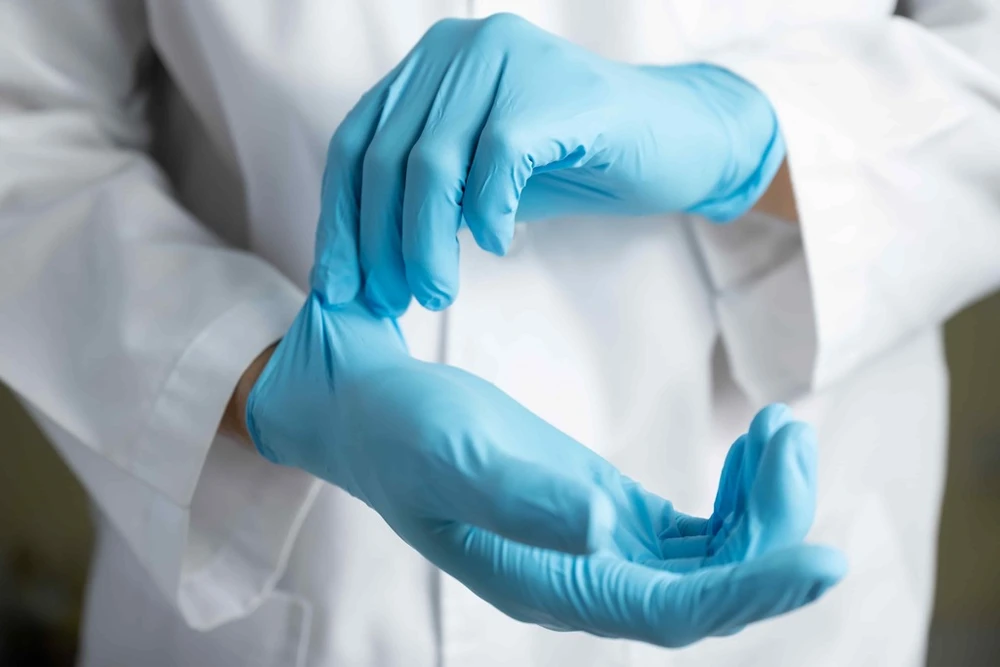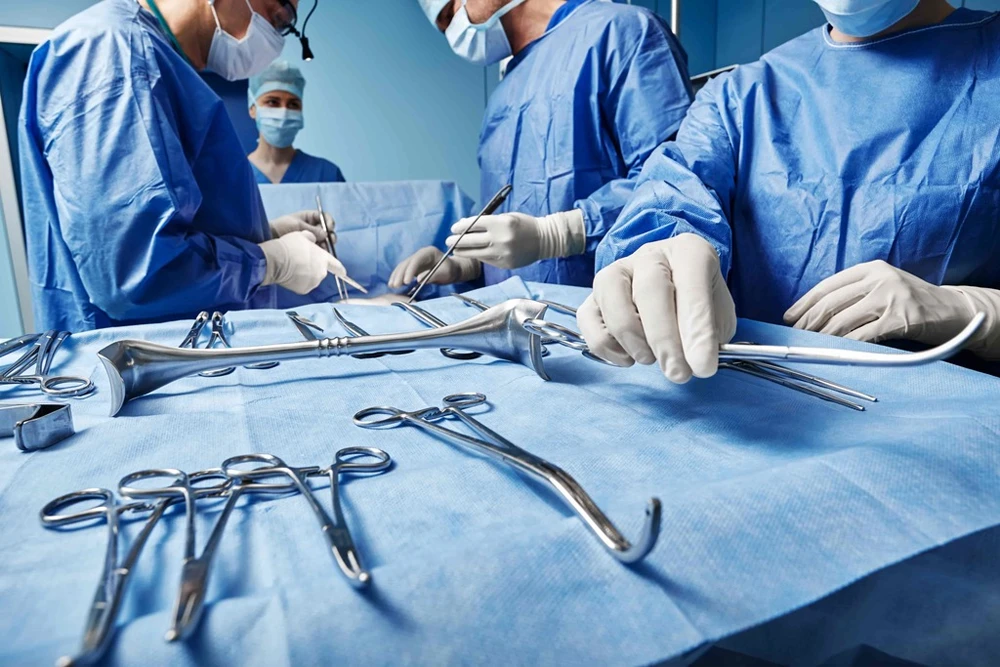Doctor Gloves Buying Guide - What To Know

Amongst the plethora of tools and personal protective equipment (PPE) that are essential for doctors, gloves stand as one of the most vital items. Adorning the proper pair of medical grade disposable gloves in a healthcare environment protects both the doctors but also the patients they're tending to.
Gloves provide a physical barrier between the doctor's hands and the patient's bodily fluids, which may contain infectious agents such as viruses and bacteria. They're also an essential part of maintaining hygiene in medical settings. They help to reduce the risk of contamination and ensure that medical procedures are performed in a sterile environment.
But what are the most appropriate gloves for doctors and how do you choose amongst all of the options out there?
What are the Best Gloves for Doctors?
Ultimately, the best gloves for doctors are disposable, protect against a wide range of harmful substances, are puncture resistant, and offer optimal dexterity. Medical treatment by doctors is widely nuanced, therefore, the optimal gloves depend on the protocol and purpose of their use.
Doctors and medical practitioners in general use disposable medical grade gloves, surgical gloves, or exam gloves, which are typically either non-sterile nitrile gloves or latex gloves. While both of these disposable medical gloves have similar tactile sensitivity and offer a high degree of puncture resistance.
Nitrile gloves have emerged as the preferred option for medical professionals and healthcare professionals in recent years, given that many people have latex allergies such as skin irritation from wearing gloves over an extended period of time.
These disposable gloves are made from a synthetic rubber material and are known for their excellent durability and chemical resistance. They're also comfortable to wear, offer better grip than most alternatives, are powder free, and provide good flexibility and dexterity, which makes them suitable for tasks that require fine motor skills. Check out this post to learn more about how nitrile gloves are made.

Which Gloves Are Used for Surgery?
The requirement of having fine motor skills and dexterity during medical procedures is exactly why surgeons in particular should consider using nitrile exam gloves. Gloves are an essential part of maintaining sterile conditions during surgery. They are designed to be worn as part of a surgical gown and glove system to prevent contamination.
Gloves also protect the surgeon's hands from sharp instruments and exposure to bodily fluids during surgery, reducing the risk of accidental injury and infection. It is often required by hospital and surgical center policies and regulations, as well as industry standards and guidelines, to ensure the safety and well-being of patients and healthcare workers.
Nitrile gloves' chemical resistance is also great for healthcare workers who handle chemotherapy drugs since they can be extremely hazardous. A few other good medical grade glove options for chemotherapy are neoprene, butyl rubber, and polyethylene gloves; neoprene gloves have good chemical resistance and are thicker than other disposable gloves, while butyl rubber gloves are highly impermeable and resistant to a wide range of chemicals, but can be thicker and offer less tactile sensitivity.
Polyethylene gloves on the other hand are lightweight and offer some protection against chemotherapy drugs, but are often used as an additional layer of protection over other medical grade gloves.
The Use of Vinyl Gloves in Medical Environments
Finally, powder free vinyl gloves are also an option for medical environments and healthcare workers, but they are lightweight and are only used in situations where there is a low risk of exposure to infectious materials or hazardous drugs.
Vinyl gloves are considered to be less durable and less puncture-resistant than other exam gloves, also making them less suitable for high-risk medical situations or tasks that involve exposure to sharp tools.
The benefit of vinyl gloves however is that they are typically less expensive than other types of gloves, such as latex gloves or nitrile gloves, making them a popular choice for routine medical tasks such as administering medications, performing basic exams, or handling non-hazardous materials.
It's common to find vinyl powder free gloves that are latex free, making them a popular choice for those who need to avoid latex and could easily be used as disposable medical gloves in a sterile environment.
Ultimately, your decision on disposable medical gloves should rely on what your job entails within the healthcare field. Whichever exam gloves you choose, it is important to follow proper glove removal and disposal procedures to prevent contamination and exposure to hazardous drugs.
WellBefore and You
Looking for great gloves to use in your medical field? WellBefore is the spot for you!
We have a wide selection of medical gloves, including bulk nitrile glove options, latex and more. We also have options in a variety of sizes and colors, in case you're required to color-code your workspace. Check out WellBefore for all of these options and more. Don't hesitate to reach out to our customer service team with any questions.